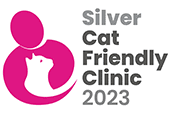This is part 2 of our blog regarding the duties performed by a Veterinary Nurse. It was written by our very own Danielle Barnett Kennels: The kennel shift can be one of the most rewarding but also saddening aspects of veterinary nursing. The kennel nurse often sees his/her patients through their treatment until they go home or the time comes to say goodbye. In the morning hand over from the night staff is shortly followed by medication checks and planning treatment for the day. All animals have to be fed and watered, soiled litter trays cleaned and replaced, dogs walked and bedding changed throughout the course of the day as needed. All I/V fluid lines need to be flushed every four hours and dressings checked for any problems. Any medication needs to be given on time throughout the day. Some patients need a little more time than others for syringe feeding or gentle exercise. The majority of the afternoon is taken up with calling clients to arrange discharge times for day patients and actually discharging the patients. The discharge itself is not always a speedy process as the discharging nurse need to make sure the owner of the animal understands about all the medication and possible side effects and aftercare required which can be complex. At Cherrydown we have separate cat and dog wards and an isolation unit. Any isolation cases need to be barrier nursed taking about 10 minutes of dressing up in protective gear before even going in so as you can imagine there’s always plenty to do. Emergency/ Weekend: ‘On duty’ means we are here, caring for your pet around the clock. We have to answer the emergency phone no matter what time it is even if we are in an emergency surgery or dealing with patients at the time. The duty nurse will be caring for their patients, doing the same tasks as the kennel nurse has been doing throughout the day. Any emergency calls need to be assessed and the emergency vet called in if needed. The duty nurse will assist with any procedures be it x-rays, blood tests or an emergency surgery. In the morning the nurse will ‘do rounds’ with the vets to update any treatment and re-examine patients and finally hand over to the kennel nurse. As you can see we have numerous responsibilities all of which need to be done competently. The veterinary nursing team need good communication and teamwork is essential. Although not qualified the auxiliary nurses are much needed. They are experienced in animal handling and very useful to have around when you need help but don’t need someone who is qualified. Veterinary Nurses never stop planning ahead whether planning operations or simply reviewing their consultations we are always on the go. Your VN is not JUST a veterinary nurse, your VN is a phlebotomist, an anaesthetist, a dental hygienist, a theatre assistant, a paediatric nurse, a dietician, a radiographer…………. the list goes on. A big thank you to Danielle for writing this blog. We hope you have found it informative and you have a better understanding of what they do. As always, if you have any questions about this subject please call us at the clinic and speak to a nurse or leave a comment on our Facebook page
Please click here to view the latest information on how to access our services.





